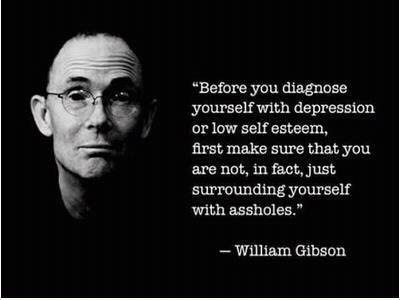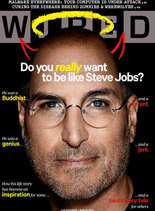About 15 years ago, UC Berkeley's Barry Staw
and I had a running conversation about the conditions under which
showing anger, even having a temper tantrum, is strategic versus
something that undermines a person's reputation and influence, and for
leaders, the performance of their teams and organizations. In fact,
Barry eventually collected some amazing in-the-locker room half-time
speeches for basketball coaches that he is currently working on writing
and publishing.
I thought of those old conversations when I got
this amazing note the other day (this is the same one that inspired me
to do my last post on the Atilla the Manager cartoon):
I just discovered your work via Tom Fishburne, the Marketoonist. I had an
asshole boss until I got her fired. For 6 years I was abused and I should have
done what you say and got out as soon as I could. But you get comfortable and
used to the abuse. You even think you are successfully managing the abusers
behavior with your behavior. Ridiculous I know. I suffered everything you
mentioned including depression, anxiety and just plain unhappiness. The day I
snapped, I used the "I quit and I'm taking you down with me" tactic.
I did document the abuse even though just like every asshole situation, everyone
knew she was an abuser. In an impassioned meeting I let top management know
exactly why I was quitting, let them know they are culpable for all the mental
anquish and turnover and poor results stemming from the asshole. They probably
thought I was a madman with nothing left to lose and about to sue and defame
the company (they'd have been correct). Two hours later she was walked out. Now
the department is doing great and actually producing instead of trying to
manage the reactions of a lunatic.
I am taken with this note for
numerous reasons. For starters, I am always delighted when the victim
of an asshole finds a successful way to to fight back. I am also
pleased to see that, as happens so often, once this creep was sent
packing, people could stop spending their days trying to deal with her
antics and instead could devote their energies to doing their jobs well.
And in thinking about it in more detail — and thinking back to those
old conversations with Barry — I believe that showing anger was
effective in this situation for at least three reasons.
1. He was right.
This was, as the headline says, an evidence-based temper tantrum.
Although his superiors may have not been overly pleased with how he
delivered the news, he apparently had darn good evidence that this
person was an asshole and doing harm to him and his co-workers. Facts
matter, even when emotions flare.
2. His anger was a reflection of how others felt, not just his particular quirks and flaws.
This outpouring of anger and the ultimatum he gave were seen as giving
voice to how everyone who worked with this "lunatic" felt. It was his
tantrum, but it was on behalf of and gave voice to others. In such
situations, when a person is not seen as out of touch reality or crazy,
even though he may have felt or even acted like a "madman" for the
moment, the anger and refusal to give in can be very powerful. I also
suspect that, in this case, those same bosses who fired him felt he same
way about the local asshole, and his anger propelled them to take an
action they knew was the right thing to do. The notion that emotions are
contagious and propel action is quite well established in a lot of
studies (see research by Elaine Hatfield for example).
3. The was a rare tantrum.
This follows from the last point. If you are always ranting and
yelling and making threats, people aren't likely to take you
seriously. Tantrums are effective when they are seen as a rare and
justified outburst rather than a personal characteristic — as something
that is more easily attributed to the bad situation the person is in
rather than personal weakness or style.
Please, please don't use
this fellow's success as a reason to start yelling and making threats
and all that. That is what a certified asshole would do. But — while
such outbursts are not always the product of rational planning — this
little episode provides instructive guidance about when expressing anger
might produce outcomes for the greater good. It also provides some
interesting hints about when it is best to try to stop outbursts from
those you are close to versus when egging them on is a reasonable thing
to do.
Finally, a big thanks to the anonymous writer of this note. I learned something from it and I hope that other do as well.
P.S. This note and post makes me think that some revision to my list of Tips for Surviving Workplace Assholes might be in order.


